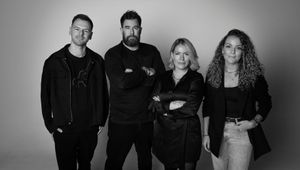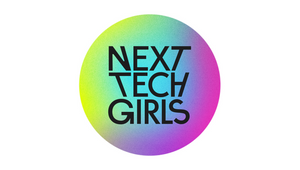
Why Digitas UK Is Embracing the Power of Experience Design

Jane Austin’s appointment in 2021 as Digitas UK’s first chief experience officer came as a real milestone for the agency. This is her first role at a creative agency. And with her experience rooted in digital product development, scaling startups globally and digital transformation of legacy businesses, she’s brought a leap forward in the agency’s customer experience skill, meaning Digitas now has board level representation of all the disciplines that clients need to transform their businesses and grow their brands.
LBB’s Alex Reeves found out more about how she views experience design and why it’s crucial to brands moving forward.
LBB> It’s exciting to see Digitas take on someone as a CXO because it’s an area that’s going through a lot of change right now in how it’s perceived. What do you think is key to understanding the role?
Jane> Yeah, it's true. Very much so. And I think it's been driven a lot by startups and sort of product-y organisations, but it's definitely coming into its own. I can rant about that for ages.
Experience is just a strange word isn't it? Because experience is everything I suppose. So personally, I studied philosophy at university, [which] rendered me completely unemployable. And then I did a second degree which was combining philosophy and graphic design, which then became UX and experience design. So I think I was right at the start of it all.
I've been doing this for about 20 years, mostly in product organisations, building things like apps. And now doing this at Digitas. I think a lot of big, more traditional organisations have been undercut by more nimble product organisations. They don't quite know what experience design is and tend to get confused with customer experience, and that's things like call centres. But they're all being customer centric. So yeah, there's a lot of strange fiefdoms and silos.
LBB> How do you define your kind of experience design as opposed to customer experience?
Jane> It's like a Venn diagram, but the bit which isn't covered has a lot to do with the customer, so call centres or trying to get customer support, maybe via chatbot or somebody at the other end of the little dialogues that you have, or people handling your complaints, like customer support. What I do comes from designing apps and products to try and minimise the need for customer support, to make them very user centred, or just actually even find the problem to solve. I think where it meets in the middle is trying to be focused on the customer and make sure that they're really looked after and have a great experience. They're both coming from different worlds, but I'd say there's a very strong crossover.
LBB> What are some other misconceptions about experience design that you often come up against?
Jane> If you don't just think about experience design, but about the design of things that you use digitally, I think there has been a misconception that the point of design is just to make things look really pretty. And you still see a lot of that thinking that somebody would be handling the design at the very end to colour in. People would be making decisions about what the product would be – maybe marketing or tech or the product people - and design wasn't really part of that equation. I think that's the fault maybe of the design community, who haven't been very good at explaining what they're doing in business or strategic terms. I also think that the space that design operates in has shrunk because you've got people in product management, marketing and tech, who all own bits of the experience and design's been squashed.
But I think people are realising that design is actually a competitive advantage. People are losing that misconception of designers as being fluffy people that colour in other people's ideas. Where design becomes a competitive advantage is that design is about solving problems. It's understanding who the thing is for, why either the client or a customer would spend money on it. So what problem are we solving? Who are you solving it for? And trying to solve it in a better way than it's ever been solved. Or trying to think about a new value proposition that hasn't really been uncovered before.
LBB> With your background in startups, what are some examples of when you've done that design thinking at a strategic level?
Jane> Well, I have worked in one place where they didn't do it really well. By not having that core strategy of knowing who your customer was, of what problem you're solving and why, I've seen organisations really struggle to cut through. Whereas somewhere I've been like Babylon or MOO, which were startups and scale ups, they really focused on the customer and what problem they were solving for the customer. And solving it in new ways, usually through technology or really focusing on the experience. Being really focused and knowing who your customers were, what they needed and continually doing research to understand your customer. And incrementally building to create some fantastic experience. That's what I've seen that worked really well.
Babylon has been one of the most successful IPOs in recent years. Other examples are places like Deliveroo, Monzo or Starling – all of them are reinventing their industry by focusing on new experiences or bringing something to customers they haven't had before and combining experience and technology to create something really new and valuable.
LBB> With your role, Digitas is making design and customer experience more central to the business. How do you think that's going to change Digitas?
Jane> Firstly, Digitas is a connected experience agency. So having somebody who can help be very intentional about designing an experience, bringing together all things we do – like marketing or technology, creative experiences, PPC – all of this has to do with the customer's experience with the brand. If you think about your experience of a brand, you just see it as the one thing. You don't think today I'm talking to the PPC team and tomorrow I'm talking to the website design team. Your experience is that you deal with the brand and it doesn't matter through which channel. But a lot of organisations are set up so that you have all these different channels and each one is owned by a different person or team. And sometimes things fall through the gaps or it's inconsistent. Focusing on the experience is the driver for all of these things. It’s what Digitas has always done and hopefully with me coming on board will make it even easier, because my job is to connect things.
The other thing that I'm doing for Digitas is being more conscious and intentional about how we do things. It's not just trying to create connected experiences for clients. What powers that is also helping design our culture. So what kind of culture do we have? We've been thinking about how you design that. What are our values? How do you express those? How do you reward those? What kind of rituals, events or ways of working or meeting rooms do we have that are going to make the culture better? And then we're looking at things like designing meetings. How do you have a meeting that's hybrid or offline or online? Rather than letting things just happen, thinking really carefully and intentionally about all the things you do – bringing that designer's mindset to it.
So many places don't do that and I think what's going to make an organisation successful is to think about the customer experience and employee experience and intentionally design both so that it supports the business. These things can't just be left to chance.
LBB> What sort of things are interesting in that space for you at the moment?
Jane> We're redesigning our offices, that should be exciting. We're looking at things like how do you have a great meeting, deciding what our culture is and how that's articulated. Things like making better decisions. Often a business is just a series of decisions. So how do you design a space where decisions can happen really well and that people feel confident and empowered? How do you design structure and processes and checkpoints so that you can push autonomy in your organisation?
To make great digital products lots of people have to make a lot of really good decisions, and so they have to be as autonomous as possible. But you can't just say to people, ‘off you go and be autonomous’; you have to be very, very careful about how you do it. How do you get people comfortable with failure? Because the way to create great experiences is to be experimental, try lots of different things and evolve and iterate. That means you have to be comfortable with failing. And a lot of organisations aren't. So how do you design a world where people are comfortable with trying things and they might fail.
LBB> What sorts of businesses and organisations do you look to as examples of putting experience design at the heart?
Jane> Probably one of the most inspirational places I've experienced this is government digital services (GDS) and the person who helped design the culture there, Russell Davies, came from advertising. They used that advertising methodology of having a really simple message, really easy to articulate, using three words and alliteration. The GDS message was 'simpler, faster, better.' And if you just look at any government department, you'll see loads of people still repeating that about 10 years on. GDS was set up to try and change the way that government works and I would say that Britain has one of the best online government experiences in the world and the way that's been delivered has been copied in America and Australia, all over Europe.
A lot of the big SaaS [software as a service] organisations realised how important it was to have senior design leadership. Because a SaaS product is just an experience. You're not going into a shop, the whole experience is entirely online and if you don't craft that, you don't compete as well. This is why Slack dominates everything and Intercom is so powerful, because they focus on what the experience of using the product is like. They're super successful because they focus on customers, learning and having a great experience.
Starling is wonderful. I think it's a really amazing, exciting bank. They focus on aspects of the banking experience that maybe haven't been considered before because banks are incredibly self referential, but Anne Boden, who's amazing. She's ex-banking, but she also did research and she really understood her customers and what all the different pain points they had were and designed around what the customer needed, which was revolutionary. They did it before Monzo except Monzo launched first.
Then smaller startups which have a mission or a purpose, so I'm working with one as an advisor that's about helping people overcome eating disorders. And being able to use digital and community and think about different payment models or designing business models was really interesting. To be able to solve these really big fundamental problems people have in a very new way, using digital and new business models. I think that's really exciting and inspirational.
LBB> What sort of work at Digitas have you been interested to get involved with so far?
Jane> There's one client that we've just had a big reset with, to design how we work with them and reconsider how we can help the team be autonomous, how they can be more transparent and they can see what we're doing. We talk about effectiveness, having more KPIs and measurements. Looking at how we can be more experimental and try a few things. Helping them understand that they're a partner with us to make their experience better. And that may not be that we will redesign something – it may be that we just need to change some copy. But we're going to use evidence and research and understanding their business strategy to work out what's the most effective we can be for the least effort. Which I think is a different way to talk to clients – to look at how we impact your business, not give you three designs. There's going to be several different ways to impact your business. What is the most economical, effective one? And we're going to partner you rather than going off and doing a big piece of work and vanishing.
LBB> What's your dream brief that you're hoping will land on your desk?
Jane> I think a brand who wants to refresh themselves. And not just a brand refresh, but a brand that might want to refresh its purpose. A brand that might want to rethink its place in the world or maybe realised it was getting left behind by technology and the new ways of working.
What do we do for our customers? Why do we do it? How do we help a brand understand who the customers are? We could use data and research. How do we help them segment or think about different types of audiences or under-served audiences in a way that they haven't before? How do we help them think about new business models to serve these audiences, or change organisationally or how they work? Moving towards agile or different ways of working.
Then once they've gained the customers or understood the customers, we could help them with things like PPC or the advertising funnel optimization, A-B testing, a new website or new app.
To be able to refresh all of this would be absolutely amazing. That'd be a real strategic challenge and we'd also be able to do amazing execution as well. It would show all the different things we can do. Because we have the ability under one roof to think about everything from understanding your customers to building something and then owning and operating it and helping organise yourself to be able to do that. It would be amazing to be able to partner with a brand to help them reset, re-find their purpose and reach their audience in new and different ways.















